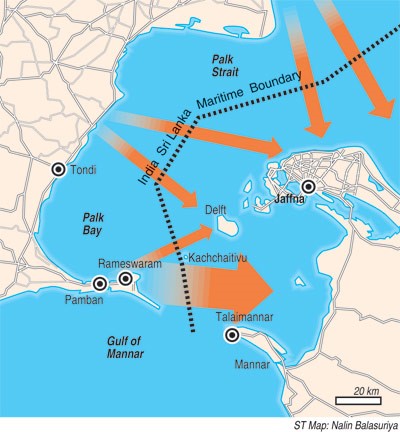Why in news?
The ongoing arrests of fishermen from Tamil Nadu and Puducherry by the Sri Lankan Navy in the Palk Bay, along with attacks on them at sea by armed civilians despite diplomatic efforts, are a serious cause for concern.

|
Allowed activities for Indian fisherman in the island |
Prohibited activities for Indian fisherman in the island |
|
Resting and net drying Visit the annual St.Anthony’s festival without the need of visa |
The fishing vessels and fishermen of India shall not engage in fishing in the historic waters, the territorial sea and the Exclusive Economic Zone of Sri Lanka |
Katchatheevu island was given by India to Sri Lanka as part of a bilateral gesture in 1974 which delineated the maritime boundary line in the Sethusamudram littoral region between the two neighboring countries.
Function of JWG
|
Concern |
India |
Sri Lanka |
|
Poaching |
|
|
|
Environmental concern |
|
|
|
Coastal security |
|
|
|
Cultural factor |
|
|
It can be modelled in lines with the Tin Bigha case where 1974 India Bangladesh boundary agreement gave India sovereignty over Tin Bigha, but a lease in perpetuity later enabled the Bangladeshis to use it for civilian purposes.